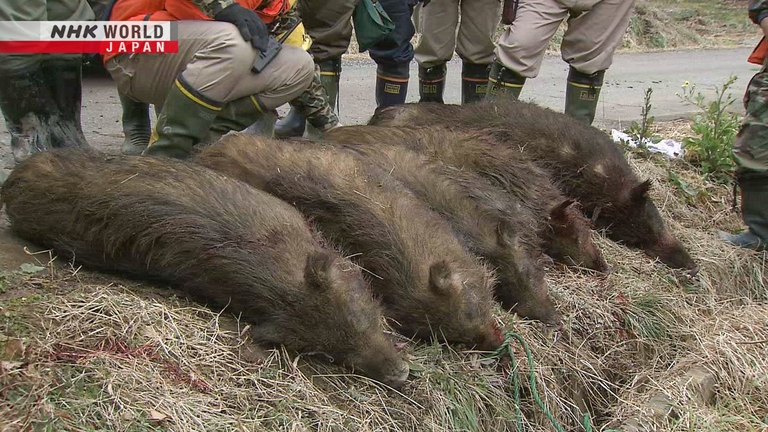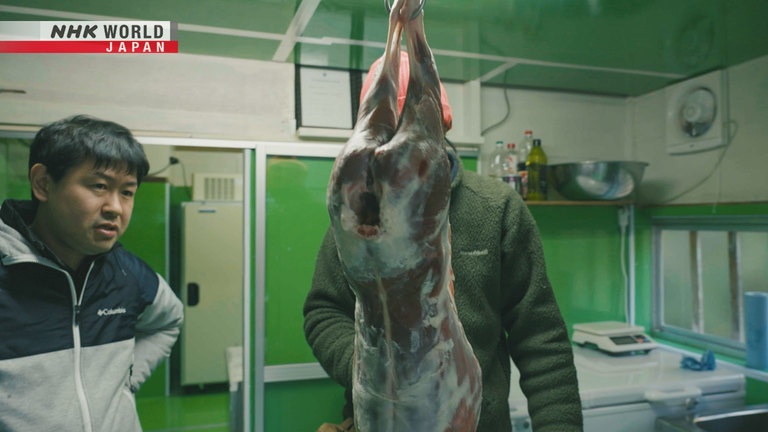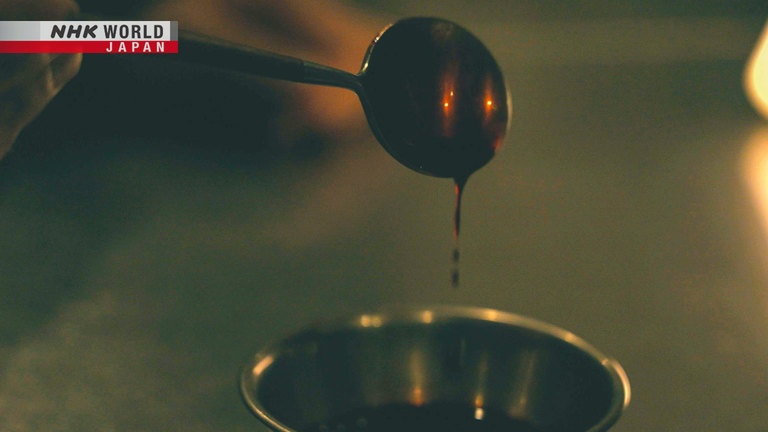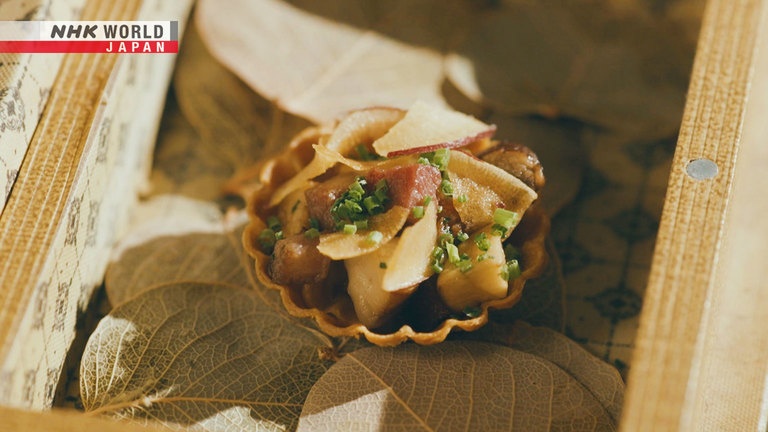Life Taken, Life Received
Chef Murota Takuto's restaurant is tucked away in a quiet corner of trend-setting Shibuya. Uniquely, he insists on using wild game, culled as so-called pests that can destroy crops or cause other harm. Wild game isn't mainstream in Japan, so as much as 90% goes to waste. He expresses his waste-not philosophy, using the bones and even the blood, as well as the meat, in his cooking. He believes that if we take a life, we owe that life a debt of respect. And his culinary creations are his way of repaying it.




Transcript
Since ancient times, the Japanese have believed that a life force resides in all creations.
Valuing and caring for the things we use, a "Zero Waste Life."
Pointing the way to better living for a new era.
Just being delicious isn't enough.
My intent is to intrigue the diner,
the food has to tell a story.
Shibuya, in the bustling heart of Tokyo.
In this trend-setting district we find a small French restaurant, favored by foodies in the know.
It offers wild game, still a rarity in Japan.
Murota Takuto is the owner-chef...
...taking wild-caught game to new levels of excellence.
The menu changes daily.
Wild game isn't hunted to order.
I can't just say, today it's wild boar.
If the venison is good today,
then that's what we'll offer.
Or maybe there's no duck,
so we serve bear instead.
There's no way to know
what I'll be serving tomorrow.
Murota chooses his meat according to a very particular criterion.
It should come from animals hunted as so called "pests."
In Japan as many as 1.2 million animals that can destroy crops or cause other harm, such as deer or wild boar, are culled by hunters annually as pests.
But, as eating wild game isn't a major part of Japanese food culture, over 90% of it goes to waste.
Murota buys this otherwise unwanted meat directly from hunters all over Japan.
It's a female, right?
This type of deer is classified as an invasive pest species.
Alongside the hunter, Nagashima Satoru, Murota carefully examines the quality of the meat.
If they struggle in the trap,
it can cause internal bleeding.
But there's almost none of that here.
This one was just caught yesterday.
- Are deer what you mostly get lately?
- Yeah, a lot more of them recently.
With wild boar numbers down,
their habitat is expanding.
They'll just keep multiplying
if nothing is done.
"Is it not commonly eaten?"
I use the meat myself.
But mostly it's burned for disposal.
It just ends up in an incinerator
with all the other burnable trash.
If it's good enough to eat,
then why throw it away?
I believe using it is more respectful
to the animal itself too.
One of the reasons such meat is often discarded is that it's difficult to prepare.
Unlike meat from domesticated animals, its condition varies.
It's just like human beings.
Some people like vegetables,
while others prefer meat.
All creatures have a personality,
they like to eat different things.
The meat has a personality too,
different flavors, different preferences.
To me, that's only natural.
It's Murota's belief that no life, no living thing, should ever go to waste.
And so, as much as possible, he makes use of the whole animal, even parts that aren't meat.
He uses the bones to make stock.
The organs are pureed to make sauce.
Not even a drop of blood goes to waste.
How should I put it?
I don't like to eat like a nobleman,
only using the best parts like a feast.
I just can't see that as the right way
to appreciate the food we eat.
His full-course meals showcase this zero-waste philosophy.
It begins with a deer blood macaron.
Deer blood is used in place of egg whites.
And the serving dish itself is deer hide.
And the pest deer caught by the hunter Nagashima becomes this amazing dish...
The main dish is a salmis of roast mallard.
Trimmings, bits often discarded, are also included and the sauce makes use of the blood.
And for dessert, a bear financier.
A classic French pastry made with bear fat.
Today, one of their regular customers is here for dinner.
She's a huge fan of Murota's cooking.
"Itadakimasu!"
As I eat, I notice the taste,
but I'm also aware it's a living thing.
It speaks of the many different forms
that life itself can take.
In Japanese we always say, "itadakimasu,"
"I humbly receive this food."
I believe it's unique to our food culture,
and one of the best things about it.
It's a way of expressing gratitude for
receiving the life of the food we eat.
If I can remind diners of this,
then their meal here has meaning.
On his day off, Murota leaves the city center behind for the country.
Trading his chef's knife for a gun, he hunts wild birds and other animals.
For him, hunting is something to cherish.
Meat in the supermarket is cold,
it just doesn't feel alive.
When I hunt, I know it's a living thing,
I give it the respect it deserves.
Hunting also helps me to reset,
so I can do my best in the kitchen.
It may not be the most important,
but it's one of the ways that I prepare.
A beautiful pheasant. Got it!
Once caught, skillful preparation is required to make sure the end result is a culinary success.
If it stays warm it'll start to rot,
so I clean and chill it immediately to keep it in the best condition.
After aging, the pheasant is transformed into this mouthwatering dish.
Through cuisine and through hunting Murota shows his respect for all life.
Something also seen in the name of his restaurant.
"Lature" is a portmanteau of the French, larme, meaning "droplet" or "teardrop," and nature.
Literally, nature is crying,
we have to do something.
That's the idea behind the name.
We call some creatures pests,
but that's a human sin not theirs.
Instead of treating them like trash,
we can honor them as our food.
It's a way to atone for what we've done.